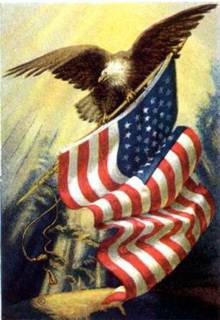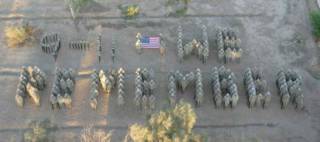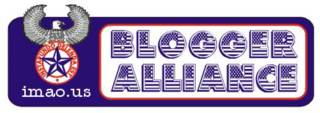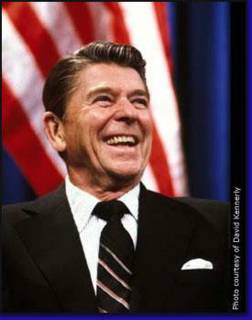Kofi Annan and His Son Need To Go-The Un Oil For Food Saga Continues
November 26, 2004 Edition
Annan's Son Took Payments Through 2004
BY CLAUDIA ROSETT - Special to the Sun
November 26, 2004
One of the next big chapters in the United Nations oil-for-food scandal will involve the family of the secretary-general, Kofi Annan, whose son turns out to have been receiving payments as recently as early this year from a key contractor in the oil-for-food program.
The secretary-general's son, Kojo Annan, was previously reported to have worked for a Swiss-based company called Cotecna Inspection Services SA, which from 1998-2003 held a lucrative contract with the U.N. to monitor goods arriving in Saddam Hussein's Iraq under the oil-for-food program. But investigators are now looking into new information suggesting that the younger Annan received far more money over a much longer period, even after his compensation from Cotecna had reportedly ended.
The importance of this story involves not only undisclosed conflicts of interest, but the question of the role of the secretary-general himself, at a time when talk is starting to be heard around the U.N. that it is time for him to resign, and the staff labor union is in open rebellion against "senior management."
"What other bombshells are out there being hidden from the public and U.N. member governments?" asked an investigator on Rep. Henry Hyde's International Relations Committee, which has held hearings on oil-for-food.
The younger Annan stopped working for Cotecna in late 1998, but it now turns out that he continued to receive money from Cotecna not only through 1999, as recently reported, but right up until February of this year. The timing coincides with the entire duration of Cotecna's work for the U.N. oil-for-food program. It now appears the payments to the younger Annan ended three months after the U.N., in November, 2003, closed out its role in oil-for-food and handed over the remains of the program to the Coalition Provisional Authority in Baghdad.
This latest bombshell involving the secretary-general's son was confirmed Wednesday by Kofi Annan's spokesman, Fred Eckhard, in response to this reporter's query, based on information obtained elsewhere. In an email, Mr. Eckhard wrote: "I was able to reach Kojo's lawyer this morning. He confirms that Kojo Annan received payments from Cotecna as recently as February 2004. The lawyer said that these payments were part of a standard non-competition agreement, under which the decision as to whether to continue the payments or not was up to Cotecna."
Mr. Eckhard added that, according to Kojo Annan's lawyer, the information has "been reported" to the U.N.-authorized inquiry into oil-for-food, led by a former Federal Reserve chairman, Paul Volcker.
Labeled as compensation for Kojo Annan's agreeing not to compete with Cotecna's business in West Africa, the post-employment payments were in the amount of $2,500 per month, according to another source with access to the documents. If the payments were continuous over the slightly more than five-year period involved, that would have totaled more than $150,000.
Cotecna officials, who this past April received a gag letter from the U.N. Secretariat, did not respond to queries from The New York Sun about why the company continued its non-competition payments to Kojo Annan for more than five years, instead of the one year previously reported. Neither did the company answer a question about why the payments apparently stopped this past February - just after the oil-for-food scandal erupted into the headlines following allegations in a Baghdad newspaper that the program was massively corrupt. Cotecna earlier this year denied any wrongdoing, saying that Kojo Annan's portfolio involved West Africa, not the U.N. or Iraq. Kojo Annan's lawyer at the London-based firm Schillings said the younger Annan is cooperating with the Volcker inquiry, but would not comment to the press on his payments from Cotecna.
The question now is whether Mr. Volcker, whose investigative brief includes not only criminal acts such as graft, but also U.N. maladministration under oil-for-food, will look closely at the evasions and contradictions that have come from the secretary-general himself regarding the money received by his son from Cotecna.
The pattern in this scandal has been that Secretary-General Annan, until confronted by the press, has either failed to spot or failed to disclose timely information about Cotecna's paychecks for his son. The first bout came back in early 1999, two years into Kofi Annan's watch as secretary-general. Cotecna had just won the U.N. oil-for-food contract, replacing a British firm, Lloyd's Register. News broke January 24, 1999, in the Sunday Telegraph, that Kojo Annan had worked for Cotecna. The U.N. produced an internal report, shown this year to the New York Times, but never publicly released, which found no wrongdoing, but evidently failed to note that Kojo Annan was still receiving payments from Cotecna.
About that same time, in February 1999, a U.N. spokesman, John Mills, told the press that Secretary-General Annan had had no knowledge of Cotecna being hired by the U.N., that Cotecna's bid for the job was the lowest "by a significant margin," and that, "This contract was treated at every stage as a routine commercial matter and in line with the rules and regulations of the United Nations" - a statement later contradicted by one of the U.N.'s own secret internal audits, which leaked this past spring.
In March of this year, with the U.N. oil-for-food scandal by then on the boil, the U.N. was questioned again by the press about Kojo Annan's relations with Cotecna. The answer at that stage from the secretary-general's office was that the younger Annan had worked on Cotecna's staff from December 1995 through February 1998, and a few weeks later became a consultant for Cotecna, resigning in early December of 1998, about three weeks before Cotecna won the U.N. contract. This was offered by Secretary-General Annan's office as evidence that the younger Annan had severed his ties with Cotecna before the company got the U.N. job. A source familiar with the documents now says that Kojo's consultancy with Cotecna expired the same day the company got the U.N. contract, December 31, 1998.
Outside investigations in recent months have added to the timeline, raising yet more questions. In September of this year, The Wall Street Journal reported that even after Kojo Annan's Cotecna consultancy ended in 1998,he continued to receive payments from Cotecna through the end of 1999, as well as having use over that same period of a company credit card. This report is confirmed by a letter, seen by this reporter, written January 11, 1999, by Cotecna CEO Robert Massey, beginning "Dear Mr. Annan" and outlining the terms of a $2,500 per month "compensatory indemnity" in return for Kojo Annan's agreement to "refrain from any similar consultancy or employment."
Now comes this latest information that Kojo Annan continued to receive payments until February 26 of this year - more than five years longer than the U.N. initially implied, four years longer than the U.N. confirmed to the press this September, and for the entire duration of Cotecna's U.N. oil-for-food contracts.
So far, the secretary-general has refused requests from Congress for inter views with U.N. staff, or access to the U.N.'s 55 internal audits of the oil-for food program. One of those internal audits, which leaked this past May, noted serious irregularities with the U.N.'s handling of the Cotecna contract, including an "inappropriate" upward revision of Cotecna's lowball $4.87 million bid, just four days after Cotecna and the U.N. signed the deal.
At every turn, the saga of the secretary-general's family ties to Cotecna raises questions about Kofi Annan's handling of potential conflicts of interest. Even if Mr. Annan cannot be held
responsible for the decisions of his son, his job does entail responsibility for the actions of the U.N. Secretariat. As the oil-for-food scandal has unfolded, it has become clear that U.N. secrecy and lack of accountability evolved, in effect, into complicity with Saddam's scams and influence-buying. By now, between congressional and other investigations, there are allegations that Saddam, on Mr. Annan's watch, under U.N. sanctions and oil-for-food supervision, scammed and smuggled some $17.3 billion in oil money meant for relief, using some of that money to fund terrorism, import weapons, and buy influence with Security Council members France, Russia, and China.
On top of that, only now is it learned that for fully more than eight years, from 1995-2004, the secretary-general's son was in one way or another on the payroll of Cotecna, which for almost five of those years held a crucial oil-for-food inspection contract with the U.N. Secretariat. All this, said the investigator for Mr. Hyde's congressional committee, is good reason why "the U.N. Secretariat should move swiftly to lift the gag order on U.N. employees and contractors and publicly release its oil-for-food program files."
------------------------------------------------------------------------------
This whole damn group needs to go to jail!!!
Annan's Son Took Payments Through 2004
BY CLAUDIA ROSETT - Special to the Sun
November 26, 2004
One of the next big chapters in the United Nations oil-for-food scandal will involve the family of the secretary-general, Kofi Annan, whose son turns out to have been receiving payments as recently as early this year from a key contractor in the oil-for-food program.
The secretary-general's son, Kojo Annan, was previously reported to have worked for a Swiss-based company called Cotecna Inspection Services SA, which from 1998-2003 held a lucrative contract with the U.N. to monitor goods arriving in Saddam Hussein's Iraq under the oil-for-food program. But investigators are now looking into new information suggesting that the younger Annan received far more money over a much longer period, even after his compensation from Cotecna had reportedly ended.
The importance of this story involves not only undisclosed conflicts of interest, but the question of the role of the secretary-general himself, at a time when talk is starting to be heard around the U.N. that it is time for him to resign, and the staff labor union is in open rebellion against "senior management."
"What other bombshells are out there being hidden from the public and U.N. member governments?" asked an investigator on Rep. Henry Hyde's International Relations Committee, which has held hearings on oil-for-food.
The younger Annan stopped working for Cotecna in late 1998, but it now turns out that he continued to receive money from Cotecna not only through 1999, as recently reported, but right up until February of this year. The timing coincides with the entire duration of Cotecna's work for the U.N. oil-for-food program. It now appears the payments to the younger Annan ended three months after the U.N., in November, 2003, closed out its role in oil-for-food and handed over the remains of the program to the Coalition Provisional Authority in Baghdad.
This latest bombshell involving the secretary-general's son was confirmed Wednesday by Kofi Annan's spokesman, Fred Eckhard, in response to this reporter's query, based on information obtained elsewhere. In an email, Mr. Eckhard wrote: "I was able to reach Kojo's lawyer this morning. He confirms that Kojo Annan received payments from Cotecna as recently as February 2004. The lawyer said that these payments were part of a standard non-competition agreement, under which the decision as to whether to continue the payments or not was up to Cotecna."
Mr. Eckhard added that, according to Kojo Annan's lawyer, the information has "been reported" to the U.N.-authorized inquiry into oil-for-food, led by a former Federal Reserve chairman, Paul Volcker.
Labeled as compensation for Kojo Annan's agreeing not to compete with Cotecna's business in West Africa, the post-employment payments were in the amount of $2,500 per month, according to another source with access to the documents. If the payments were continuous over the slightly more than five-year period involved, that would have totaled more than $150,000.
Cotecna officials, who this past April received a gag letter from the U.N. Secretariat, did not respond to queries from The New York Sun about why the company continued its non-competition payments to Kojo Annan for more than five years, instead of the one year previously reported. Neither did the company answer a question about why the payments apparently stopped this past February - just after the oil-for-food scandal erupted into the headlines following allegations in a Baghdad newspaper that the program was massively corrupt. Cotecna earlier this year denied any wrongdoing, saying that Kojo Annan's portfolio involved West Africa, not the U.N. or Iraq. Kojo Annan's lawyer at the London-based firm Schillings said the younger Annan is cooperating with the Volcker inquiry, but would not comment to the press on his payments from Cotecna.
The question now is whether Mr. Volcker, whose investigative brief includes not only criminal acts such as graft, but also U.N. maladministration under oil-for-food, will look closely at the evasions and contradictions that have come from the secretary-general himself regarding the money received by his son from Cotecna.
The pattern in this scandal has been that Secretary-General Annan, until confronted by the press, has either failed to spot or failed to disclose timely information about Cotecna's paychecks for his son. The first bout came back in early 1999, two years into Kofi Annan's watch as secretary-general. Cotecna had just won the U.N. oil-for-food contract, replacing a British firm, Lloyd's Register. News broke January 24, 1999, in the Sunday Telegraph, that Kojo Annan had worked for Cotecna. The U.N. produced an internal report, shown this year to the New York Times, but never publicly released, which found no wrongdoing, but evidently failed to note that Kojo Annan was still receiving payments from Cotecna.
About that same time, in February 1999, a U.N. spokesman, John Mills, told the press that Secretary-General Annan had had no knowledge of Cotecna being hired by the U.N., that Cotecna's bid for the job was the lowest "by a significant margin," and that, "This contract was treated at every stage as a routine commercial matter and in line with the rules and regulations of the United Nations" - a statement later contradicted by one of the U.N.'s own secret internal audits, which leaked this past spring.
In March of this year, with the U.N. oil-for-food scandal by then on the boil, the U.N. was questioned again by the press about Kojo Annan's relations with Cotecna. The answer at that stage from the secretary-general's office was that the younger Annan had worked on Cotecna's staff from December 1995 through February 1998, and a few weeks later became a consultant for Cotecna, resigning in early December of 1998, about three weeks before Cotecna won the U.N. contract. This was offered by Secretary-General Annan's office as evidence that the younger Annan had severed his ties with Cotecna before the company got the U.N. job. A source familiar with the documents now says that Kojo's consultancy with Cotecna expired the same day the company got the U.N. contract, December 31, 1998.
Outside investigations in recent months have added to the timeline, raising yet more questions. In September of this year, The Wall Street Journal reported that even after Kojo Annan's Cotecna consultancy ended in 1998,he continued to receive payments from Cotecna through the end of 1999, as well as having use over that same period of a company credit card. This report is confirmed by a letter, seen by this reporter, written January 11, 1999, by Cotecna CEO Robert Massey, beginning "Dear Mr. Annan" and outlining the terms of a $2,500 per month "compensatory indemnity" in return for Kojo Annan's agreement to "refrain from any similar consultancy or employment."
Now comes this latest information that Kojo Annan continued to receive payments until February 26 of this year - more than five years longer than the U.N. initially implied, four years longer than the U.N. confirmed to the press this September, and for the entire duration of Cotecna's U.N. oil-for-food contracts.
So far, the secretary-general has refused requests from Congress for inter views with U.N. staff, or access to the U.N.'s 55 internal audits of the oil-for food program. One of those internal audits, which leaked this past May, noted serious irregularities with the U.N.'s handling of the Cotecna contract, including an "inappropriate" upward revision of Cotecna's lowball $4.87 million bid, just four days after Cotecna and the U.N. signed the deal.
At every turn, the saga of the secretary-general's family ties to Cotecna raises questions about Kofi Annan's handling of potential conflicts of interest. Even if Mr. Annan cannot be held
responsible for the decisions of his son, his job does entail responsibility for the actions of the U.N. Secretariat. As the oil-for-food scandal has unfolded, it has become clear that U.N. secrecy and lack of accountability evolved, in effect, into complicity with Saddam's scams and influence-buying. By now, between congressional and other investigations, there are allegations that Saddam, on Mr. Annan's watch, under U.N. sanctions and oil-for-food supervision, scammed and smuggled some $17.3 billion in oil money meant for relief, using some of that money to fund terrorism, import weapons, and buy influence with Security Council members France, Russia, and China.
On top of that, only now is it learned that for fully more than eight years, from 1995-2004, the secretary-general's son was in one way or another on the payroll of Cotecna, which for almost five of those years held a crucial oil-for-food inspection contract with the U.N. Secretariat. All this, said the investigator for Mr. Hyde's congressional committee, is good reason why "the U.N. Secretariat should move swiftly to lift the gag order on U.N. employees and contractors and publicly release its oil-for-food program files."
------------------------------------------------------------------------------
This whole damn group needs to go to jail!!!








































0 Comments:
Post a Comment
<< Home